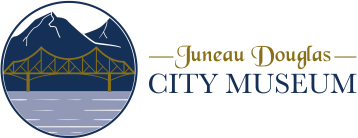Digital Bob Archive
November 1918 - Part 1
Days Of Yore
- 06/01/1991
NOVEMBER 1918 - PART 1:
As October gave way to November, Juneau residents were frequently reminded of the horrors of the Princess Sophia wreck as more bodies were recovered and brought to town. There was a further reminder when John F. Pugh, the Collector of Customs for Alaska and the only resident aboard the Sophia, was buried. Banks and many other businesses closed for the funeral.
But there were other happenings, good and bad, to distract people's minds from the Sophia tragedy. The good news was that the war in Europe was winding down and the end of it was obviously in sight. The bad news was that the epidemic of Spanish influenza that had swept across the country, killing thousands of people of all ages, had finally reached Alaska.
After a number of cases developed in Juneau, a quarantine was ordered by Mayor Emery Valentine, Health Board Chairman J.H. Montgomery, and Dr. L.O. Sloane, the City Health Officer. All social and public functions were forbidden and churches, schools, theaters and pool halls were ordered closed. Parents were warned to keep their children at home and off the streets. When James Wickersham, running for Delegate in Congress, attempted to hold a public political rally, it was broken up by police. No more than four individuals were to congregate on any sidewalk.
As a further anti-flu measure, the City Council adopted an ordinance ordering all residents to wear masks except when in their own homes. These masks were to measure five by seven inches, to consist of four layers of fine gauze and to have tie-strings at each corner.
Douglas adopted quarantine measures very like those in Juneau. The quarantines tended to keep people in their homes as much as possible and lack of traffic prompted the Juneau Ferry & Navigation Company to cut its cross-channel service from nine trips a day to four. The annual convention of the Alaska Native Brotherhood, scheduled for Hoonah, was canceled, and so were a number of other gatherings.
By November 6 it was reported that there were 100 cases of influenza in Juneau, and there had been one death, that of Mrs. Maud Kelly. She was a nurse at the Juneau General Hospital where she contracted the disease while caring for patients who had it. Mrs. A.P. Kashevaroff and three of her five daughters, Nadja, Legia and Natalie, were among the first in Juneau to be stricken but all survived.
Mrs. Ethel Cragg, Juneau's Superintendent of Schools, organized the entire teaching staff of the Public Schools as a volunteer corps to assist in the hospitals or to aid families whose members were ill. There were other volunteers, too, including several married nurses who had not worked in some time but who now put on their uniforms and were available where needed.
